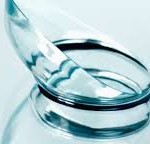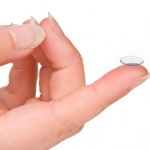Seasonal Allergies and Contact Lenses

If you’re a contact lens wearer and you always experience seasonal allergies, you’re dealing with a confusing matter. Should you prioritize vision or comfort? Having itchy, watery eyes is a common seasonal allergy symptom, and that’s clearly not ideal if you’re always wearing contact lenses.
Let’s learn more about the causes, symptoms, diagnosis, and treatment of seasonal allergies so you’ll gain more knowledge on how to deal with it. Knowing more about seasonal allergies may finally let you wear contacts without consequences.
What causes seasonal allergies?
Allergic rhinitis, or hay fever, is a common condition that happens in specific seasons. It’s caused by allergens in the air, mostly affecting your eyes, nose, and ears.
Seasonal allergy is the immune system’s response when your body is in contact with airborne allergens. This leads to the release of histamines inside the human body, thus triggering common allergy symptoms. The most common allergens found in the air are pollens and the sources vary per season.
Fall Allergens
In this season, the major cause of allergies is ragweed. It won’t even matter if it’s near your home or not; its pollen can be carried for miles by strong winds.
Another possible allergen during the fall months is mold. It’s not only found growing in the bathroom and other wet sections indoors; they can also grow on wet grounds.
Meanwhile, some of the plants that release their pollen during this season are plantains, mugworts, and sorrels.
Spring Allergens
Among the four seasons, this is the peak for seasonal allergies. The main culprit is the trees because, in spring, they release their sperm cells in the air to fertilize other plants and reproduce. The seeds are carried out by the wind, which is why allergies commonly happen during breezy days.
Some of the most common allergenic trees are birch, cedar, horse chestnut, and poplar. Pollens’ sources aren’t only from trees; they can also come from grasses and weeds.
Summer Allergens
During this season, trees are done doing their part. So, this time, the grasses and weeds are the most common sources of summertime allergens.
Plants vary from place to place, but some of the most popular are weeds such as Russian thistle, pigweed, and tumbleweed, and grasses like Bermuda, bluegrass, and timothy. Allergens, however, aren’t just from plants. Smog, which is worse during summer, is a possible cause of allergic rhinitis.
Winter Allergens
Most plants are asleep during winter, but that doesn’t mean allergens are on hiatus. Spending more time indoors means that you’re more likely to contact allergens from your own home.
For example, turning on your heater may release dust, dust mites, insect parts, and mold spores which may cause an allergic reaction from your body. In addition, some people are allergic to pet fur, dander, and excrements.
What are the symptoms of seasonal allergies?
Symptoms can begin at any time of the year, depending on what you’re allergic to. Some of the common symptoms include:
- runny nose
- sneezing
- coughing
- watery eyes
- postnasal drip
- itchy sensation on your nose and eyes
- stuffy ears
Meanwhile, some of the severe symptoms include:
- headache
- excessive sweating
- facial pain caused by sinus block
- wheezing
- shortness of breath
- loss of smell and taste
More serious symptoms liked tiredness, irritability, insomnia, and fatigue may be experienced by others. Also, some people who have existing food allergies or asthma may experience worse signs when triggered by allergic rhinitis.
Check our offer:
Contact lenses without prescription
How are seasonal allergies diagnosed and treated?
Seasonal allergies are typically easier to spot compared to other allergies. Having repetitive allergic reactions in a certain season is a clear sign of allergic rhinitis.
Personal diagnosis can be done by checking symptoms. However, common cold and seasonal allergy symptoms are so similar. Although, there’s one factor that can tell whether you’re experiencing the latter or not. If the symptoms have been happening repeatedly, there’s a higher chance you’re struggling with seasonal allergies.
More importantly, consult an allergist. Allergists can identify the type of allergy you have by pricking your skin with different allergens.
Once you’re diagnosed with seasonal allergies, medications such as decongestants and antihistamines will be prescribed to you. In severe cases, however, allergy shots may be prescribed by the doctor.
Meanwhile, there are alternative treatments for those who don’t like to take meds. Examples include spirulina, vitamin C (which contains antihistamine properties), Lactobacillus acidophilus from yogurt, and quercetin.
And, to prevent the recurrence of allergies, the greatest solution is avoidance. Identify the allergens that make you vulnerable and then find ways to avoid them. For instance, pollens are rampant on breezy days, so always check weather forecasts, skip outdoor time, and shut the windows.
Can you wear contact lenses if you have seasonal allergies?
Definitely! However, you need to follow some of these tips:
- Wear spectacles most of the time. Using eyeglasses are the best alternative to wearing contact lenses. Even the best contacts can still catch airborne pollens and spores, which only prolongs irritation.
- Shift to disposables. If you can’t switch to eyeglasses, this is the next best alternative. Using daily disposable contact lenses may prevent dry eyes and reduce the possibility of allergens sticking on the surface. But, before you do that, ask an eye doctor first just to be safe.
- Maintain moisture in your eyes. Allergens can cause dry eye syndrome. Use eye drops frequently to keep your eyes moist and wash off the irritants.
- Regularly clean your contacts. Washing your contact lenses with a fresh solution removes the allergens.
- Apply a cold compress. Do not rub itchy, swollen eyes! Rubbing will worsen the inflammation in the eyes and spread the allergens. Use a cold compress to relieve eye discomfort.
Conclusion
Seasonal allergies have a lot of causes. You can’t possibly put everything on just one brief list. That’s why you need to pay attention to different factors per season. Once you experience some symptoms, don’t hesitate to consult a specialist so you don’t have to struggle. This will also make it easier for you to wear contact lenses. That’s right; you may use contacts even if you have seasonal allergies as long as you follow the necessary precautions and choose the right type of lenses.
Where to Buy Daily Disposable Contact Lenses
Since daily disposables are best for people with seasonal allergies, Contact Lenses 4 Us include products like the Proclear 1 Day, Biomedics 1 Day Extra, and Acuvue 1-Day Define Natural Shimmer. Order now without presenting a single prescription. We ship globally.
Read also:
Contact Lenses and Dry Eye Syndrome
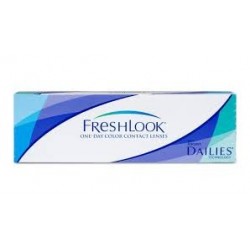
Freshlook One Day contact lenses
Contact lens wearers who opt for daily colored disposable contacts should consider Freshlook One Day contact lenses. Made by ...
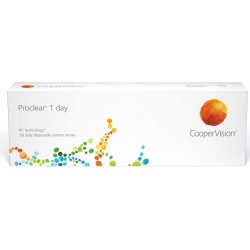
Proclear 1 Day Contacts
Proclear 1 Day Contacts, made by Cooper Vision keeps you from getting that gritty, sandy feeling in your eye. The PC technolo...
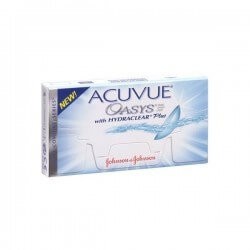
ACUVUE OASYS contact lenses no prescription
Acuvue Oasys: Ultimate Comfort with HYDRACLEAR PLUS Discover the comfort of Acuvue Oasys contact lenses, empowered by HYDRACL...
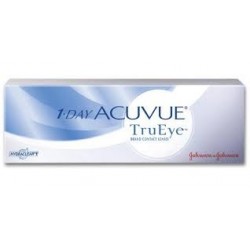
1-DAY ACUVUE TRUEYE (30)
The 1-day Acuvue TruEye (30) lens made by Johnson and Johnson, offers the highest UVA and UVB blocking among disposable conta...

